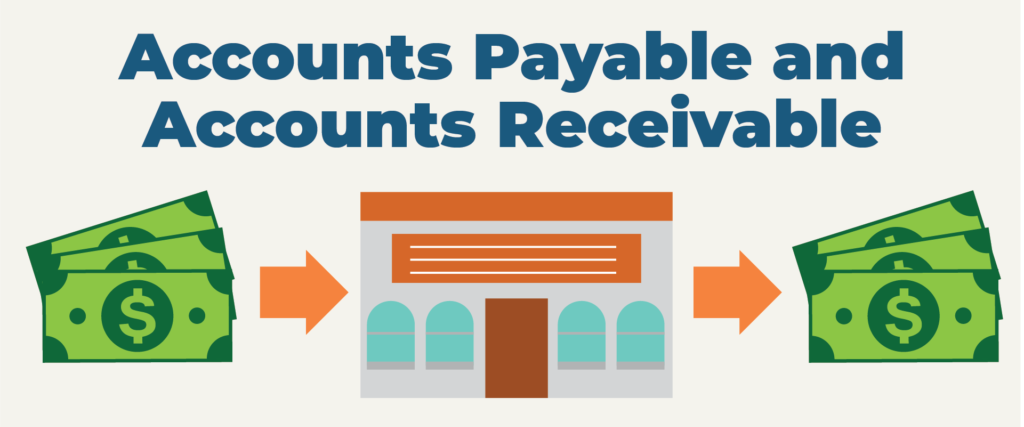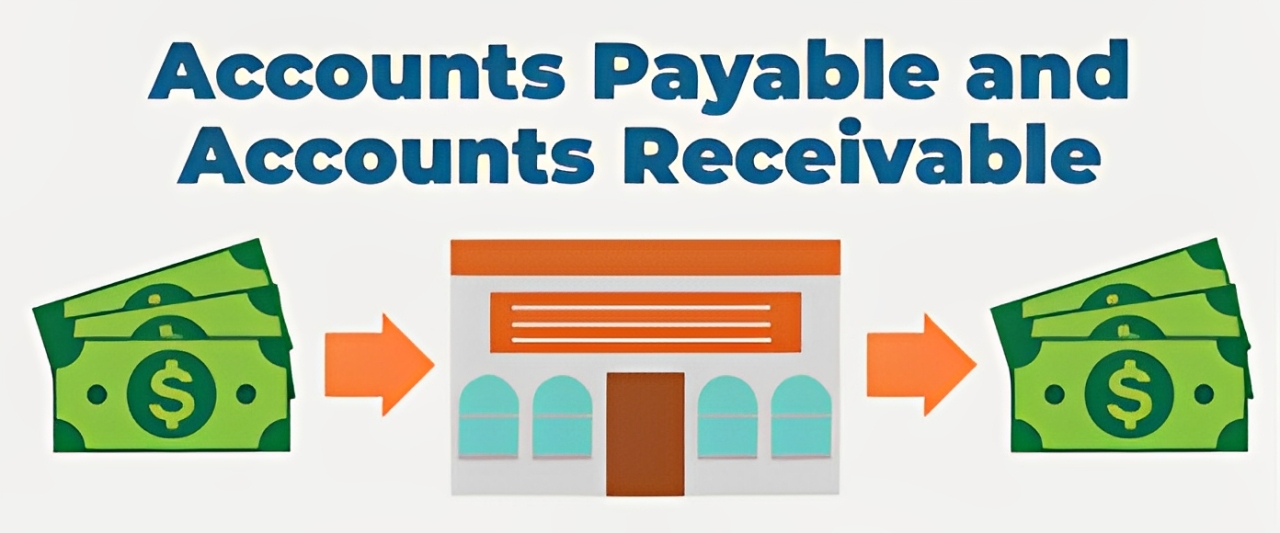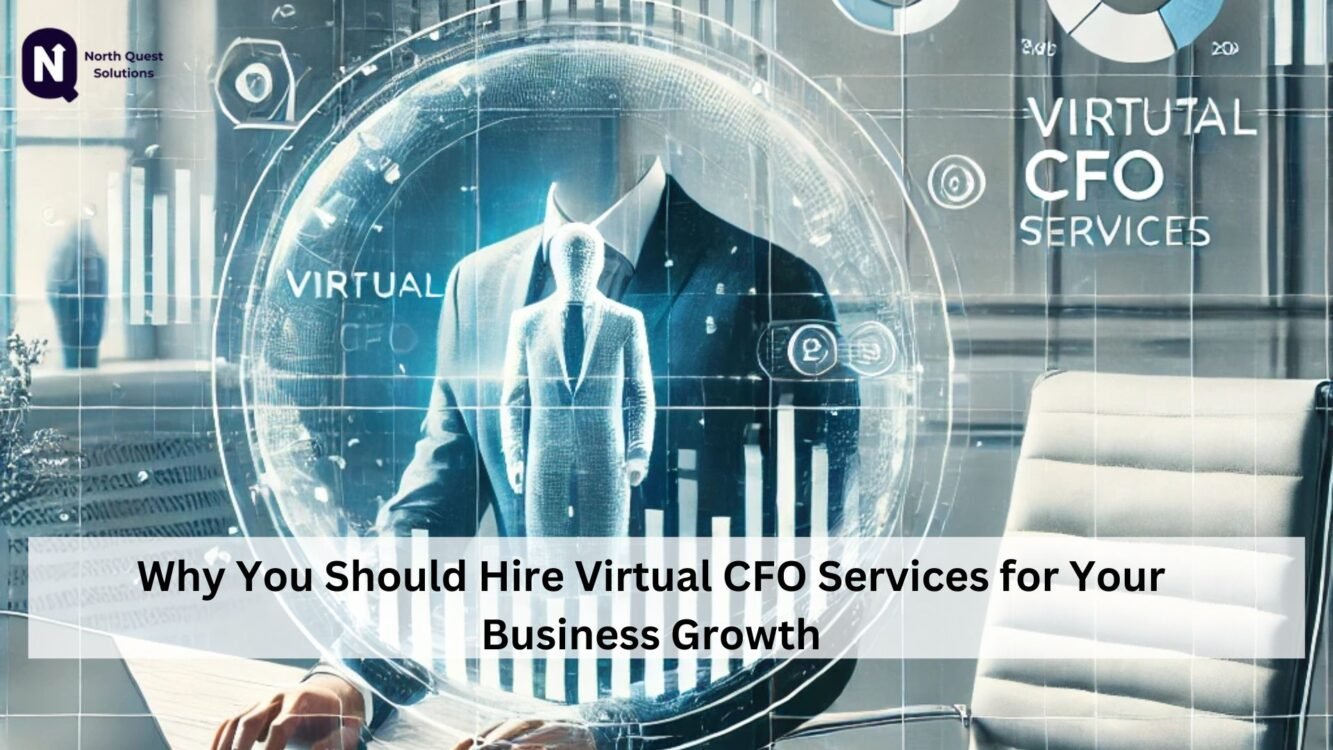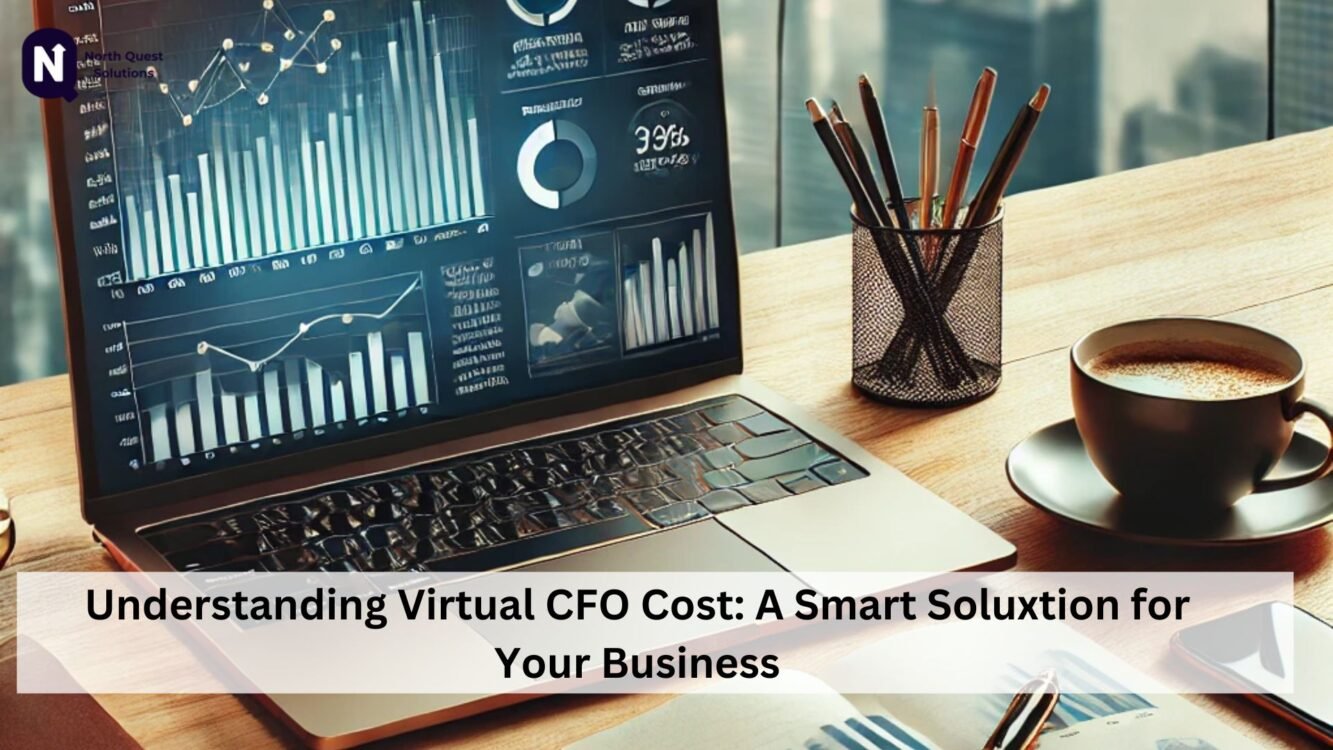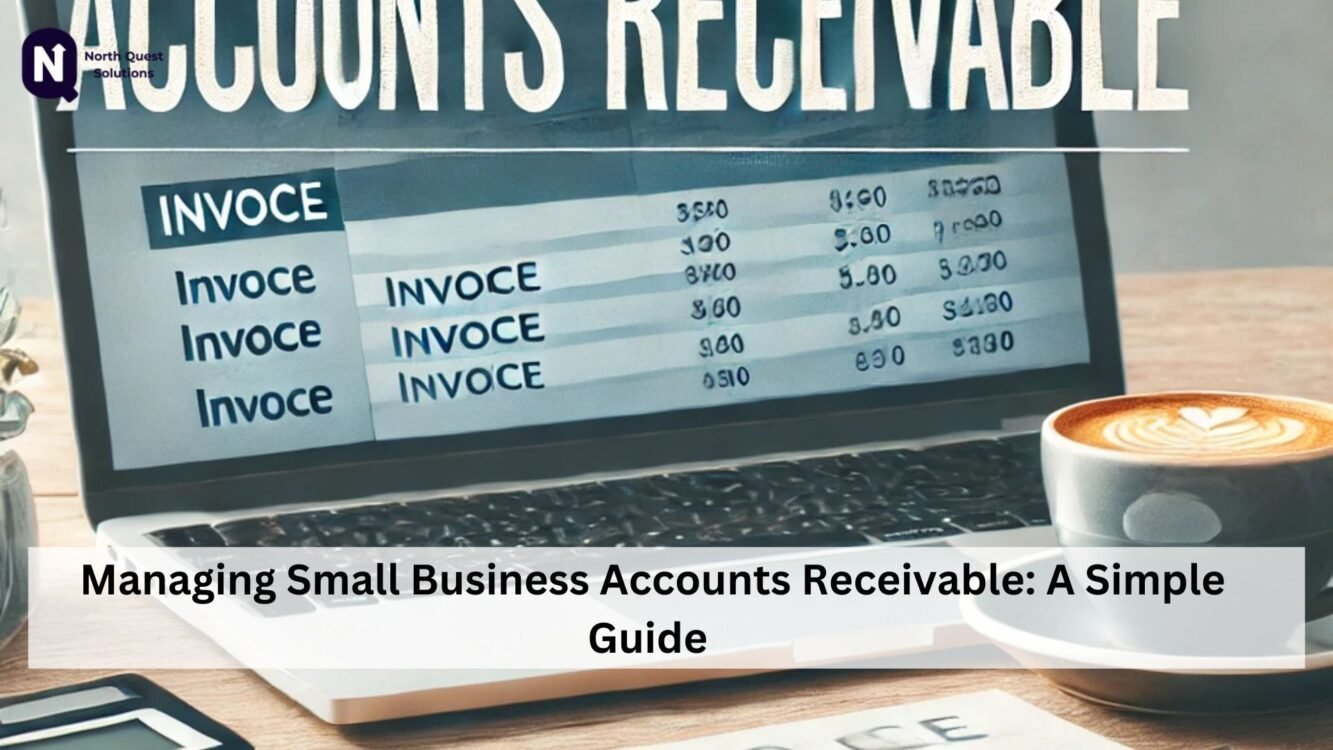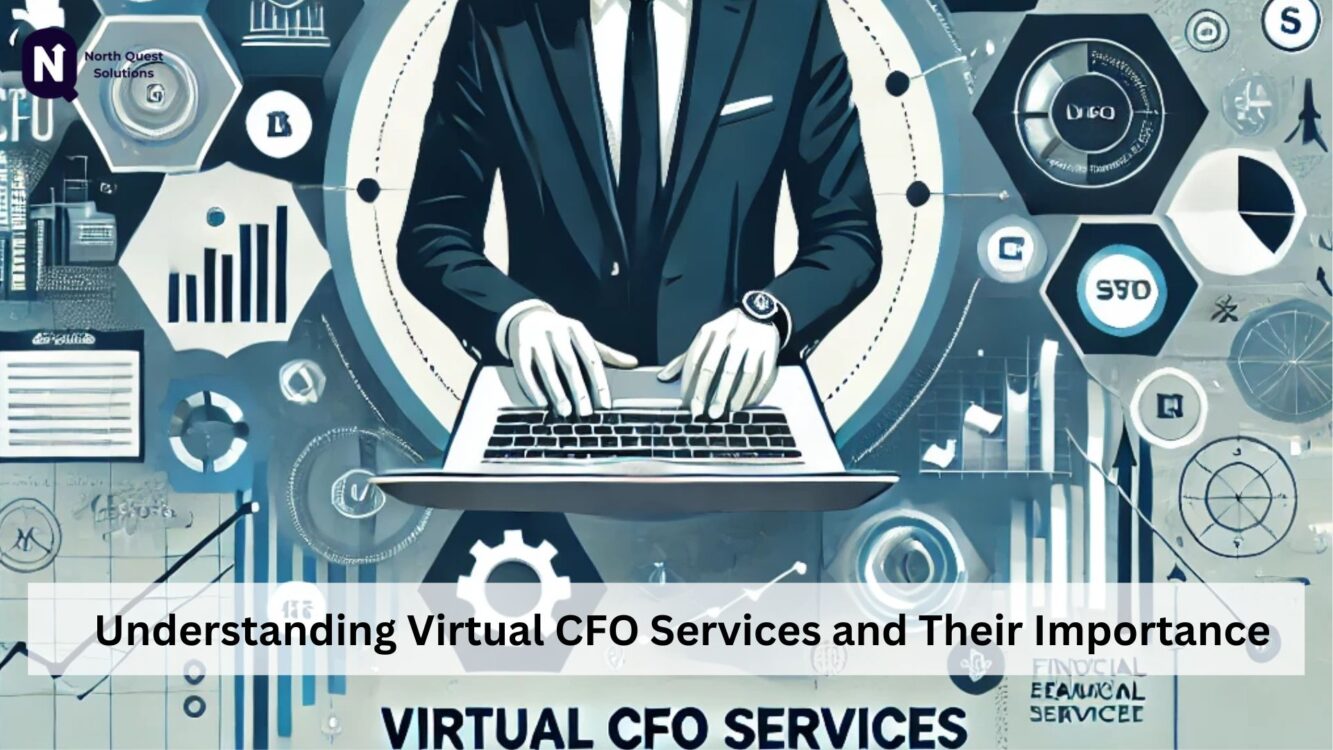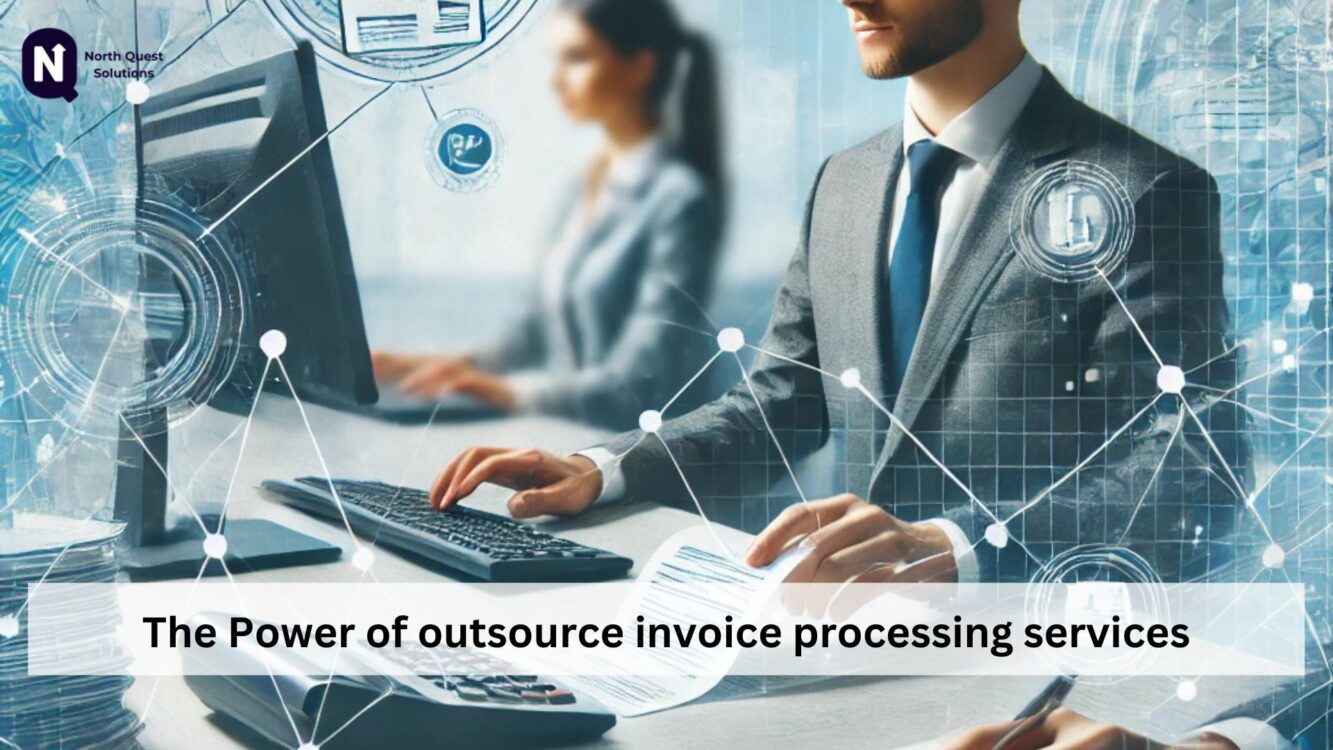Top 10 Strategies to Optimize Your Accounts Payable and Receivable Processes
Managing accounts payable (AP) and accounts receivable (AR) can be a daunting task for businesses of any size. These critical financial processes ensure the smooth flow of money in and out of your business, impacting everything from your cash flow to your bottom line. However, if not properly optimized, they can lead to inefficiencies, delayed payments, and even errors in accounting. But don’t worry – with the right strategies, you can streamline these processes and boost your business’s financial health. In this article, we’ll dive deep into the top 10 strategies to optimize your accounts payable and receivable processes. Whether you’re a small business owner or part of a larger financial team, these tips will help you improve efficiency, reduce errors, and ultimately keep your cash flowing smoothly. Let’s jump in! 1. Automate Your Processes Why Automation is a Game Changer If you’re still relying on manual data entry or spreadsheets to manage your AP and AR, it’s time to embrace automation. Software tools can handle a lot of the heavy lifting, from generating invoices to tracking payments and sending reminders. Not only does automation save time, but it also reduces the risk of human error, which can be costly. AP Automation: Tools like QuickBooks or Xero automate invoice processing and approval workflows. AR Automation: Automated invoicing systems can send out reminders, helping you get paid faster and more consistently. Automation simplifies the process and ensures that you can focus on other strategic aspects of your business. Plus, it provides a much-needed safeguard against oversight or delayed payments. 2. Implement Efficient Invoice Management The Key to Getting Paid Faster An essential part of optimizing your accounts receivable process is streamlining your invoicing system. Delayed or poorly managed invoices can result in late payments or disputes, which can damage your cash flow. Set Clear Payment Terms: Always outline clear payment terms on your invoices, such as “net 30” or “due upon receipt,” to avoid confusion. Send Invoices Promptly: Don’t wait to send invoices. The sooner you send them, the sooner you’ll get paid! Track Your Invoices: Use a centralized invoicing system that can track which invoices are overdue and which are still pending. Software like FreshBooks or Zoho can handle this for you. By creating a system that ensures invoices are sent on time and tracked diligently, you’ll reduce the likelihood of missed payments. 3. Build Strong Relationships with Suppliers and Clients The Power of Communication While it might seem obvious, fostering positive relationships with both suppliers and clients can go a long way in optimizing your accounts payable and receivable. Clear communication helps prevent misunderstandings and keeps both sides aligned. Negotiate Terms: Establish payment terms with your suppliers and clients that are mutually beneficial. Having agreed-upon terms helps avoid late fees or delays. Maintain Open Channels: Regularly check in with suppliers to ensure timely deliveries and payments. Similarly, keep clients informed about any changes to your payment processes. Good relationships lead to trust, and trust makes financial negotiations smoother, leading to more efficient operations. 4. Use E-Payments for Faster Transactions The Fast and Secure Way to Pay and Get Paid In today’s digital world, paper checks are becoming a thing of the past. They’re slow, they can get lost, and they often lead to delayed payments. E-payments are quicker, more secure, and more efficient. Adopt Direct Transfers: Encourage clients to use bank transfers, credit cards, or payment systems like PayPal for quicker payments. Enable Recurring Payments: For clients with regular purchases, set up recurring billing to make payments automatic and hassle-free. By making payments digital, you’ll minimize delays and improve cash flow, leading to a more efficient AP and AR process. 5. Improve Your Collection Efforts Stay on Top of Late Payments When it comes to accounts receivable, one of the biggest challenges is collecting overdue payments. It’s essential to follow up on outstanding invoices promptly and professionally. Send Reminder Notices: Set automated reminders for clients before and after payment due dates. This can prevent late payments and improve cash flow. Create a Collection Policy: Establish a formal policy for handling late payments, including follow-up strategies and escalation procedures. By having a clear collection strategy, you reduce the likelihood of overdue payments and keep your cash flow steady. 6. Offer Discounts for Early Payments Sweeten the Deal for Clients Who doesn’t like a good deal? Offering a discount for early payments can be a great incentive for clients to settle invoices ahead of time. This strategy benefits both parties. 10% Discount for Early Payment: Offering a small percentage discount for payments made within a specified period (e.g., 10 days) can encourage clients to pay sooner. Loyalty Programs: For regular clients, you can set up a loyalty program offering incentives for consistent early payments. By offering discounts, you encourage faster payments while strengthening your business relationships. 7. Reconcile Your Accounts Regularly Keeping Things in Check Regular reconciliation of your accounts payable and receivable ensures that everything is in order and that there are no discrepancies between your records and what’s actually happening. Monthly Reconciliation: Set aside time each month to reconcile your AP and AR with your bank statements. Spot Errors Early: By regularly reviewing your accounts, you can catch any errors early and correct them before they become bigger issues. This proactive approach helps you stay organized and avoid costly mistakes down the line. 8. Optimize Your Credit Policies Reduce Risk, Improve Cash Flow Having a clear and efficient credit policy helps you minimize the risk of non-payment while keeping cash flow steady. Credit Limits: Set appropriate credit limits for clients based on their payment history or creditworthiness. Conduct Credit Checks: For new clients, always conduct a credit check to determine if they’re a good fit for credit terms. By fine-tuning your credit policies, you protect your business from unnecessary risks while maintaining healthy cash flow. 9. Centralize Your Financial Data One Dashboard for Everything A centralized dashboard that shows both your accounts payable and receivable in one place
Read MoreUnderstanding Accounts Receivable and Accounts Payable
Ever wondered how businesses keep their financial wheels turning smoothly? Well, two unsung heroes play a pivotal role in this dance: Accounts Receivable (AR) and Accounts Payable (AP). While they might sound like accounting jargon, understanding these concepts is crucial for anyone keen on grasping the financial pulse of a company. So, let’s break it down and see what these terms really mean, how they differ, and why they matter. What Are Accounts Receivable (AR)? In simple terms, Accounts Receivable refers to the money a company is set to receive from its customers for goods or services provided on credit. Think of it as the IOUs your clients owe you. When a business sells products or services without immediate payment, it records the amount owed as AR. This amount is listed as a current asset on the balance sheet, indicating expected cash inflows. NetSuite Key Points: Nature: Asset Function: Represents money to be received Impact on Cash Flow: Improves cash flow when collected What Are Accounts Payable (AP)? On the flip side, Accounts Payable is the money a company owes to its suppliers or vendors for goods or services received but not yet paid for. It’s like the bills you need to pay after enjoying a meal at a restaurant. AP is recorded as a current liability on the balance sheet, representing future cash outflows. NetSuite Key Points: Nature: Liability Function: Represents money to be paid Impact on Cash Flow: Impacts cash flow when payments are made Key Differences Between AR and AP While both AR and AP deal with money transactions, they serve opposite sides of the financial spectrum. Here’s a quick comparison: Aspect Accounts Receivable (AR) Accounts Payable (AP) Definition Money owed to the company by customers Money owed by the company to suppliers/vendors Nature Asset Balance Sheet Listed under current assets Listed under current liabilities Cash Flow Impact Increases cash flow when collected Decreases cash flow when paid Example Company purchases goods on credit The Importance of Managing AR and AP Effective management of both AR and AP is vital for a company’s financial health. Here’s why: Cash Flow Management: Balancing AR and AP ensures that a company has enough liquidity to meet its obligations while also collecting revenue. Paystand Supplier Relationships: Timely AP management helps maintain good relationships with suppliers, which can lead to better payment terms and discounts. Customer Relations: Efficient AR management ensures that customers are billed correctly and promptly, fostering trust and repeat business. Financial Planning: Understanding the timing of cash inflows and outflows aids in accurate financial forecasting and planning. Best Practices for Managing AR To keep your AR in check, consider the following: Prompt Invoicing: Send out invoices as soon as goods or services are delivered. Clear Payment Terms: Specify payment terms (e.g., net 30 days) on all invoices. Regular Follow-Ups: Implement a system to follow up on overdue invoices. Offer Discounts: Encourage early payments by offering small discounts. Use Technology: Leverage accounting software to track and manage AR efficiently. Best Practices for Managing AP To keep your AP under control, consider these tips: Verify Invoices: Ensure that all invoices match purchase orders and receipts before payment. Prioritize Payments: Pay bills based on due dates to avoid late fees and maintain good supplier relationships. Negotiate Terms: Discuss favorable payment terms with suppliers to improve cash flow. Maintain Records: Keep detailed records of all payments made for future reference. Automate Processes: Use accounting software to streamline AP processes and reduce errors. Common Questions About AR and AP Q1: Can the same person handle both AR and AP? While it’s possible, it’s generally recommended to separate these duties to reduce the risk of errors or fraud. Thomson Reuters Tax Q2: How do AR and AP affect a company’s profitability? Efficient AR ensures timely revenue collection, while effective AP management helps avoid unnecessary expenses, both contributing to overall profitability. Q3: What happens if AR is not managed properly? Poor AR management can lead to cash flow problems, making it difficult to pay bills and invest in growth opportunities. Q4: How can technology assist in managing AR and AP? Accounting software can automate invoicing, track payments, and generate reports, making AR and AP management more efficient and accurate. Q5: Why is it important to reconcile AR and AP regularly? Regular reconciliation ensures that the amounts recorded in your books match actual transactions, helping to maintain accurate financial records. Conclusion Understanding Accounts Receivable and Accounts Payable: Key Differences and Importance is more than just an accounting exercise; it’s about grasping the lifeblood of a business’s financial operations. By effectively managing both, companies can ensure smooth cash flow, maintain healthy supplier and customer relationships, and lay the groundwork for sustained growth. So, whether you’re a business owner or just someone curious about how companies tick, keeping an eye on AR and AP is a smart move.
Read MoreMaster Cash Flow: Strategies for Accounts Payable and Receivable
Running a business isn’t a walk in the park. If there’s one thing that can make or break your operations, it’s cash flow management. Cash flow—the lifeblood of your business—is all about balancing your accounts payable and receivable effectively. Mess it up, and you might face a financial storm. Get it right, and you’ll enjoy smooth sailing. So, how do you master cash flow while juggling these two key financial pillars? This article dives into top strategies to manage accounts payable and receivable effectively—without losing your mind. Understanding Cash Flow Basics Before we dive into the strategies, let’s cover some basics. What’s cash flow, anyway? It’s the movement of money in and out of your business. Positive cash flow means more money is coming in than going out. Negative cash flow? You’re spending more than you’re earning—a recipe for trouble. Accounts Payable vs. Accounts Receivable Accounts Payable (AP): Money your business owes to vendors or suppliers. Think of it as your financial obligations. Accounts Receivable (AR): Money owed to your business by customers. It’s your hard-earned revenue waiting to be collected. Balancing these two ensures you’ve got enough cash on hand to keep things rolling. Why Mastering Cash Flow Matters When your AP and AR are mismanaged, you could face: Late Payments: Damaging supplier relationships and piling up penalties. Unpaid Invoices: Hurting your bottom line and straining operations. Credit Issues: Making it harder to secure loans or negotiate better terms. Mastering cash flow ensures steady growth, keeps your team happy, and builds trust with stakeholders. Ready to jump into the how-to? Top Strategies for Effective Accounts Payable Management 1. Set Clear Payment Terms Your vendors should know when and how you’ll pay them. Communicate payment terms upfront and stick to them. For instance, consider these practices: Negotiate extended payment terms with reliable vendors. Offer early payment discounts to save a buck. 2. Automate Your AP Process Say goodbye to manual tracking—it’s prone to errors! With tools like QuickBooks or Xero, you can: Schedule payments. Track due dates. Avoid late fees. 3. Regularly Review AP Reports Stay on top of your accounts by analyzing your AP aging report. It’ll help you: Identify overdue payments. Avoid paying duplicate invoices. Spot any irregularities early. Top Strategies for Effective Accounts Receivable Management 1. Send Invoices Promptly The sooner you send an invoice, the faster you’ll get paid. Simple, right? Use professional, detailed invoices that include: Payment terms (e.g., NET 30). Accepted payment methods. Late payment penalties. 2. Follow Up Without Delay Customers can forget or delay payments, but you shouldn’t. A polite reminder email works wonders. Try this follow-up schedule: Reminder one week before the due date. Follow-up the day after the due date. Second follow-up a week later, if needed. 3. Offer Multiple Payment Options Make it easy for customers to pay you. Accept: Bank transfers Credit/debit cards Digital wallets (PayPal, Venmo, etc.) Convenience can speed up payments significantly. Combining AP and AR Strategies for Optimal Cash Flow Balancing AP and AR isn’t rocket science, but it does require strategy. Here’s how you can merge both sides for cash flow mastery: 1. Maintain a Cash Reserve Always have a cushion for rainy days. A good rule of thumb? Keep three to six months’ worth of operating expenses on hand. 2. Perform Regular Cash Flow Analysis Review your cash flow statement monthly. Look for trends like: Delays in receivables Consistently high payables 3. Sync AP and AR Processes Align payment terms with receivable cycles. For instance: Negotiate 60-day payment terms with vendors. Offer customers 30-day terms. This overlap ensures you’re never caught short. Conclusion Mastering cash flow by managing accounts payable and receivable effectively isn’t just a smart business move—it’s essential for long-term success. By setting clear terms, automating processes, and staying proactive, you’ll ensure your business remains financially healthy. Remember: cash flow management is a journey, not a one-time fix. Keep learning, adjusting, and growing FAQs About Cash Flow and Accounts Management 1. How often should I review my cash flow? Ideally, every week. Regular reviews help you catch issues before they snowball. 2. What’s the biggest mistake in cash flow management? Ignoring overdue invoices. Late payments hurt your revenue and strain customer relationships. 3. Can automation really make a difference? Absolutely! Automation reduces errors, saves time, and keeps your processes consistent.
Read MoreAccounts Payable and Receivable examples
Balancing your books can feel like juggling chainsaws. Accounts payable and receivable might sound like dry accounting terms, but they’re the heartbeat of any business’s cash flow. Without a clear handle on what you owe and what’s owed to you, you’re inviting chaos into your financial life. Luckily, with the right examples and strategies, you can streamline these processes and keep your business humming along like a well-oiled machine. In this guide, we’ll explore practical accounts payable and receivable examples, uncovering ways to improve your processes and keep those financial hiccups at bay. So, buckle up, and let’s dive in! What Are Accounts Payable and Receivable? Before diving into examples, let’s get the basics straight. Think of accounts payable (AP) as the IOUs your business gives to others and accounts receivable (AR) as the IOUs you collect from others. Easy, right? Accounts Payable (AP): Money your business owes to suppliers, vendors, or service providers. Accounts Receivable (AR): Money your clients or customers owe your business for goods or services provided. Together, these processes form the backbone of financial management. Let’s look at how they work in real life. Accounts Payable Examples: Keeping Tabs on What You Owe AP management isn’t just about paying bills on time. It’s about optimizing cash flow and maintaining good relationships with suppliers. Here are some common examples: 1. Paying Vendor Invoices Imagine you run a boutique coffee shop. You order beans from a premium supplier, and they send you an invoice due in 30 days. That’s an account payable. Timely payment ensures you don’t run out of beans or sour your relationship with the supplier. Best Practice: Use accounting software to automate invoice tracking and reminders. 2. Rent and Utilities Monthly expenses like rent for office space or electricity bills also fall under accounts payable. Missing these payments can disrupt your operations and damage your reputation. Pro Tip: Negotiate flexible payment terms with landlords or utility providers during off-peak seasons. 3. Subscription Services Got cloud software or digital tools? Their monthly or yearly fees are accounts payable. Ensure these are recorded accurately to avoid service interruptions. Quick Tip: Review subscriptions quarterly to cut unnecessary costs. Accounts Receivable Examples: Getting Paid Without the Drama AR ensures money flows into your business. Poor AR management can lead to cash crunches—something no business wants! Here are some examples to guide you: 1. Customer Invoices Say you own a graphic design firm and just wrapped up a project. You send an invoice for $5,000, due in 15 days. That’s an account receivable. Pro Tip: Include clear payment terms on invoices to avoid confusion. 2. Payment Plans If you offer payment plans for high-ticket items, those installments are accounts receivable. For instance, a gym offering annual memberships split into monthly payments tracks each installment as AR. Best Practice: Use automated reminders to nudge customers about upcoming payments. 3. Unpaid Invoices (A Nightmare Scenario) Unpaid invoices are common yet tricky. For instance, a small business delivering office supplies might have clients who delay payments. This delay can choke cash flow if not managed properly. Solution: Implement late payment penalties or offer early payment discounts. Streamlining Accounts Payable and Receivable Processes Managing AP and AR effectively doesn’t happen by chance. Here are some tips to streamline your processes: #1. Invest in Accounting Software Ditch the spreadsheets and embrace modern tools like QuickBooks, Xero, or Zoho Books. These platforms automate invoice tracking, payment reminders, and financial reporting. #2. Set Clear Payment Terms Make your payment terms crystal clear. Whether it’s “Net 15” or “Due on Receipt,” clarity ensures fewer disputes. #3. Monitor Cash Flow Regularly Review your cash flow weekly. Look for trends, overdue payments, or upcoming expenses to stay ahead of potential problems. #4. Foster Relationships Good supplier and customer relationships can provide wiggle room when you need it. Don’t underestimate the power of picking up the phone and having a conversation. #5. Train Your Team Ensure your finance team understands the ins and outs of AP and AR. Proper training reduces errors and improves efficiency. Common Challenges and How to Overcome Them Every business faces roadblocks with AP and AR. Here’s how to tackle some of the biggies: 1. Late Payments (Incoming and Outgoing) Late payments can disrupt your cash flow and damage relationships. Use these strategies: Automate payment reminders. Offer incentives for early payments. Negotiate extended terms with suppliers if cash flow is tight. 2. Inaccurate Record-Keeping Messy records lead to missed payments and confusion. Implement these steps: Conduct monthly audits. Use accounting software to minimize human error. Create standardized processes for tracking invoices. 3. Disputed Invoices Disputes can stall payments. Avoid this by: Clearly itemizing invoices. Responding to disputes promptly. Keeping detailed records to support your claims. Conclusion Accounts payable and receivable might seem like mundane tasks, but they’re the lifeblood of your business finances. From vendor invoices to customer payments, understanding these processes can save you headaches and help your business thrive. By implementing the tips and examples shared here, you can streamline your accounts payable and receivable processes and focus on what truly matters—growing your business. Remember, mastering these basics isn’t just about staying afloat; it’s about setting the stage for long-term success. What’s the main difference between AP and AR? AP tracks money your business owes, while AR tracks money owed to your business. They’re two sides of the same financial coin. Can one person handle both AP and AR? For small businesses, yes. However, separating these roles can reduce errors and improve accountability as your business grows. How can I prevent unpaid invoices? Require deposits for large projects. Send reminders before due dates. Offer multiple payment options (credit cards, bank transfers, etc.). What tools are best for managing AP and AR? Popular options include QuickBooks, FreshBooks, and Wave. Choose software that suits your business size and needs.
Read MoreWhy You Should Hire Virtual CFO Services for Your Business Growth
Running a business comes with numerous financial challenges. Whether you are a startup looking to establish a solid financial foundation or a growing company seeking to scale efficiently, having the right financial guidance is critical. This is where the decision to hire Virtual CFO services can transform your business operations. In this blog, we will explore the advantages of working with a Virtual CFO, the cost-effectiveness of this approach, and how it aligns with the goals of businesses like yours. What Is a Virtual CFO? A Virtual CFO (Chief Financial Officer) is a professional who offers financial expertise remotely, helping businesses manage their finances without the need to hire a full-time in-house CFO. These services are ideal for small to medium-sized businesses that cannot afford a traditional CFO but require expert financial guidance. Benefits of Hiring a Virtual CFO 1. Cost Savings Hiring a full-time CFO can be expensive, with costs including salary, benefits, and bonuses. By opting to hire Virtual CFO services, you gain access to expert financial guidance at a fraction of the cost. This flexibility allows businesses to allocate resources more effectively. 2. Strategic Financial Planning A Virtual CFO doesn’t just handle your books. They help you create long-term financial strategies, forecast future growth, and make data-driven decisions. This strategic insight is essential for businesses looking to scale or navigate uncertain economic climates. 3. Access to Expertise When you hire Virtual CFO professionals, you gain access to a wealth of experience and knowledge. These experts bring years of experience in managing financial operations across industries, ensuring you receive tailored advice that fits your business model. 4. Scalability Virtual CFO services are scalable, meaning you can adjust the level of support based on your business needs. As your business grows, the Virtual CFO can adapt their services to align with your evolving goals. 5. Improved Cash Flow Management Effective cash flow management is vital for any business. A Virtual CFO ensures that your business maintains a healthy cash flow by optimizing expenses, managing receivables, and advising on investment opportunities. Why North Quest Solutions? At North Quest Solutions, we understand the importance of having a reliable financial partner. Our Virtual CFO services are designed to provide customized solutions that meet your specific needs. Whether it’s budgeting, forecasting, or financial reporting, our team ensures that your business stays on track for success. FAQs About Virtual CFO Services 1. What industries can benefit from Virtual CFO services? Any industry can benefit from hiring a Virtual CFO. From startups to established businesses, these services cater to diverse sectors, including technology, manufacturing, retail, and more. 2. How do I know if I need a Virtual CFO? If you find it challenging to manage your finances, make informed decisions, or scale your business, it’s time to hire Virtual CFO services. They provide the strategic insight you need to overcome financial hurdles. 3. How does a Virtual CFO differ from an accountant? While an accountant focuses on day-to-day financial tasks, a Virtual CFO takes a broader view of your business, providing strategic guidance, financial planning, and long-term growth strategies. 4. Are Virtual CFO services secure? Yes, reputable Virtual CFO providers like North Quest Solutions use advanced security measures to ensure the confidentiality of your financial data. Key Takeaway Deciding to hire Virtual CFO services is a step toward professionalizing your business’s financial management. It’s cost-effective, scalable, and provides the strategic insights necessary to drive growth. At North Quest Solutions, we’re committed to helping businesses like yours achieve their financial goals with tailored Virtual CFO solutions.
Read MoreExpert Tax Services for Startups | Compliance & Savings Guide
Tax Services for Startups Starting a new business is an exciting journey, but it also comes with many responsibilities. Among the most critical aspects of running a startup is managing tax services for startups. Proper tax management ensures compliance with legal requirements and helps in optimizing costs, ultimately contributing to the growth of your business. Why Are Tax Services for Startups Essential? As a startup, understanding and navigating the complexities of taxation can be challenging. Tax services for startups provide expert guidance on: Tax Compliance: Ensuring that your startup adheres to all local, state, and federal tax laws. Tax Planning: Strategically planning to minimize tax liabilities and maximize deductions. Filing Requirements: Meeting all deadlines for income tax, payroll tax, and sales tax filings. Key Benefits of Professional Tax Services for Startups 1. Time-Saving Managing taxes on your own can consume valuable time. By outsourcing tax services for startups, you can focus more on growing your business rather than worrying about compliance. 2. Financial Savings Tax professionals can identify potential deductions and credits specific to startups. These savings often outweigh the cost of hiring tax services for startups. 3. Error-Free Filing Errors in tax filing can lead to penalties. Relying on professional tax services for startups reduces the likelihood of mistakes. Common Tax Challenges Faced by Startups 1. Understanding Tax Obligations Many startups are unsure about which taxes they need to pay. This is where tax services for startups prove invaluable, as experts can provide clarity on obligations. 2. Claiming Deductions Startups often miss out on claiming eligible deductions, such as office expenses, software tools, and travel costs. Professional tax services for startups ensure you don’t leave money on the table. 3. Handling Sales Tax If your startup sells products or services, understanding and managing sales tax can be complex. Professional tax services for startups help streamline this process. Choosing the Right Tax Services for Startups When selecting a provider, consider their experience with startups, industry expertise, and client reviews. The right tax services for startups will not only ensure compliance but also act as a strategic partner in your financial planning. FAQs About Tax Services for Startups 1. What are tax services for startups? Tax services for startups include professional assistance in tax planning, compliance, and filing to ensure startups meet all legal requirements and optimize their financial strategies. 2. Why should startups hire professional tax services? Hiring professional tax services for startups saves time, reduces errors, ensures compliance, and helps in identifying tax-saving opportunities. 3. How can startups benefit from tax planning? Tax planning helps startups minimize liabilities, maximize deductions, and allocate resources efficiently for growth. 4. What common tax mistakes do startups make? Common mistakes include missing filing deadlines, failing to claim eligible deductions, and misunderstanding tax obligations. Professional tax services for startups can prevent these errors. 5. How do I choose the best tax service provider for my startup? Look for providers with experience in working with startups, positive client reviews, and a deep understanding of your industry. Final Thoughts Effective tax management is crucial for the success of any startup. By leveraging professional tax services for startups, you can navigate the complexities of taxation with ease, saving both time and money. Investing in the right expertise today can set your startup on the path to sustained growth and compliance. If you’re a startup looking for expert tax guidance, explore the best tax services for startups to ensure your business thrives.
Read MoreUnderstanding Virtual CFO Cost: A Smart Soluxtion for Your Business
Managing finances is crucial for the success of any business, but hiring a full-time Chief Financial Officer (CFO) can be expensive. That’s where a virtual CFO comes in. Let’s explore what influences the virtual CFO cost and why it’s a cost-effective solution for small and medium-sized businesses. What is a Virtual CFO? A virtual CFO is an experienced financial professional who provides strategic financial guidance remotely. They help businesses manage budgets, forecast revenue, and optimize cash flow without being a full-time, in-house employee. Factors Affecting Virtual CFO Cost Several factors can influence the cost of hiring a virtual CFO: Scope of Services: The more services you require, such as financial reporting, tax planning, or forecasting, the higher the cost. Business Size and Complexity: Larger or more complex businesses may need more intensive financial management. Experience and Expertise: A highly experienced virtual CFO may charge more but often provides greater value. Engagement Model: Some CFOs charge hourly rates, while others work on monthly retainers. Why Invest in a Virtual CFO? A virtual CFO offers several benefits that justify the cost: Cost-Effective Financial Expertise: You get access to top-tier financial knowledge at a fraction of the cost of hiring a full-time CFO. Scalability: Services can be scaled up or down based on your business needs. Improved Decision-Making: A virtual CFO provides insights that drive better financial decisions. Typical Virtual CFO Cost The cost of hiring a virtual CFO varies depending on the factors mentioned above. Generally, you can expect to pay: Hourly Rates: $100 to $300 per hour. Monthly Retainers: $2,000 to $10,000 per month, depending on your business needs. While the upfront cost may seem high, the return on investment (ROI) often outweighs the expense. Additional Benefits of a Virtual CFO Besides managing your finances, a virtual CFO can also: Prepare financial strategies for growth. Ensure compliance with regulations. Enhance cash flow and working capital management. Final Thoughts Investing in a virtual CFO is a strategic decision that can save your business money while providing expert financial guidance. The virtual CFO cost is a small price to pay for the long-term financial health and success of your business. If you’re looking for reliable virtual CFO services, contact North Quest Solutions today to learn more about how we can help your business thrive. FAQs 1. What is the difference between a Virtual CFO and an in-house CFO? A Virtual CFO provides similar expertise as an in-house CFO but works remotely and on a part-time or contractual basis, making it more cost-effective. 2. How much does a Virtual CFO typically cost? A Virtual CFO generally charges between $100 to $300 per hour or $2,000 to $10,000 per month, depending on your business needs. 3. Can a small business benefit from a Virtual CFO? Yes, small businesses can greatly benefit from a Virtual CFO by gaining expert financial guidance without the high cost of a full-time CFO. 4. How do I choose the right Virtual CFO for my business? Look for experience, relevant industry expertise, and a service package that aligns with your business goals. Consider testimonials and reviews as well. 5. What services does a Virtual CFO offer? Virtual CFOs provide financial reporting, cash flow management, budgeting, tax planning, forecasting, compliance guidance, and more.
Read MoreManaging Small Business Accounts Receivable: A Simple Guide
Effective management of small business accounts receivable is essential for maintaining a healthy cash flow and ensuring financial stability. For small businesses, timely collection of payments can significantly impact growth and operations. This guide will explore key strategies to optimize your small business accounts receivable process. What Are Small Business Accounts Receivable? Small business accounts receivable refers to the money owed to a business by its customers for products or services sold on credit. This unpaid revenue is recorded as an asset in your business ledger until it is collected. Managing small business accounts receivable effectively ensures steady income and avoids cash flow bottlenecks. Tips for Managing Small Business Accounts Receivable 1. Establish Clear Payment Terms Set clear expectations for your clients regarding payment timelines and terms. Specify due dates, late fees, and accepted payment methods in contracts or invoices to avoid confusion and ensure smooth small business accounts receivable collection. 2. Use Invoicing Software Investing in reliable invoicing software can streamline your small business accounts receivable process. Automated reminders, easy tracking, and professional invoice templates help you stay organized and follow up on unpaid invoices effectively. 3. Monitor Customer Creditworthiness Before extending credit, evaluate the credit history of your customers. Offering credit to reliable clients reduces the risk of late payments and improves your small business accounts receivable performance. 4. Offer Multiple Payment Options Providing flexible payment options, such as credit cards, digital wallets, or bank transfers, makes it easier for customers to pay on time. This approach can significantly enhance your small business accounts receivable turnover rate. 5. Follow Up PromptlySend reminders a few days before the payment is due and follow up immediately after the due date. Consistent communication is key to managing small business accounts receivable efficiently. Why Efficient Small Business Accounts Receivable Management Matters Poor management of small business accounts receivable can lead to delayed payments, strained cash flow, and financial instability. On the other hand, a well-managed small business accounts receivable system improves liquidity, supports operational expenses, and fosters better client relationships. Conclusion Effectively managing small business accounts receivable is a critical aspect of running a successful enterprise. By implementing clear payment terms, leveraging technology, and staying proactive with follow-ups, small businesses can optimize their cash flow and ensure long-term financial health. Start focusing on your small business accounts receivable today to secure a brighter future for your business! FAQs: Small Business Accounts Receivable Q1: What does accounts receivable mean for small businesses? A: Small business accounts receivable refers to the money owed by customers for goods or services sold on credit. It represents income that is yet to be collected and is crucial for maintaining a healthy cash flow. Q2: Why is managing accounts receivable important for small businesses? A: Efficient management of small business accounts receivable ensures steady cash flow, reduces the risk of bad debts, and supports day-to-day operations without financial strain. Q3: How can I improve my small business accounts receivable process? A: You can improve your small business accounts receivable process by: Setting clear payment terms. Using invoicing software for automation. Offering multiple payment options. Monitoring customer creditworthiness. Following up on overdue payments. Q4: What tools can help manage small business accounts receivable? A: Invoicing and accounting software like QuickBooks, Xero, or FreshBooks can streamline your small business accounts receivable management by automating invoices, tracking payments, and sending reminders. Q5: What are the common challenges in managing small business accounts receivable? A: Common challenges include late payments, unresponsive customers, difficulty tracking invoices, and insufficient follow-ups. Addressing these issues is key to effective small business accounts receivable management.
Read MoreVirtual CFO Services | Outsourced CFO Solutions for Your Business
Understanding Virtual CFO Services and Their Importance In today’s dynamic business environment, companies are constantly seeking innovative solutions to optimize their financial management. One such solution that has gained immense popularity is virtual CFO services. These services provide businesses with expert financial guidance without the need to hire a full-time CFO. Whether you are a startup or an established business, a virtual CFO can help streamline your financial processes, reduce costs, and enhance profitability. What Are Virtual CFO Services? Virtual CFO services involve outsourcing the responsibilities of a Chief Financial Officer to a professional or an agency that operates remotely. This model allows businesses to access expert financial advice and strategic planning without incurring the expenses associated with a full-time CFO. By leveraging virtual CFO solutions, companies can focus on their core operations while ensuring their financial health is in expert hands. Benefits of Virtual CFO Services Hiring a virtual CFO offers numerous advantages: Cost-Effective: Compared to a full-time CFO, a virtual CFO provides the same level of expertise at a fraction of the cost. Scalability: Businesses can customize virtual CFO pricing based on their needs, making it an ideal solution for startups and small businesses. Expertise: With virtual CFO consulting, companies gain access to seasoned professionals who bring extensive industry experience. Flexibility: A fractional CFO can be engaged on a part-time or project basis, offering flexibility to businesses. Enhanced Decision-Making: Through detailed financial analysis and forecasting, virtual CFO services empower businesses to make informed decisions. Why Choose North Quest Solutions for Virtual CFO Services? At North Quest Solutions, we specialize in providing tailored virtual CFO services to meet your unique business needs. Our team of experts delivers high-quality CFO outsourcing services that help you achieve your financial goals. Whether you are looking for affordable virtual CFO services or require CFO advisory services, we’ve got you covered. Key Services We Offer: Virtual CFO for startups: Helping new businesses establish strong financial foundations. CFO services for small businesses: Offering cost-effective solutions for SMEs. Virtual CFO for tech startups: Tailored financial strategies for technology-driven enterprises. Outsourced CFO services: Comprehensive support for businesses seeking expert guidance. Virtual CFO vs. Full-Time CFO A common question many businesses face is whether to opt for a virtual CFO or hire a full-time CFO. While a full-time CFO offers in-house expertise, a virtual CFO is more cost-effective and flexible. Additionally, a remote CFO brings a broader perspective, having worked across various industries, which is especially valuable for startups and SMEs. Conclusion Embracing virtual CFO services can be a game-changer for your business. By partnering with experts like North Quest Solutions, you can ensure financial stability, make informed decisions, and position your company for long-term success. Whether you need a virtual CFO for startups, CFO services for small businesses, or comprehensive CFO outsourcing services, we are here to help. FAQs About Virtual CFO Services 1. What is the difference between a virtual CFO and a traditional CFO? A virtual CFO works remotely and is typically engaged on a part-time or project basis, whereas a traditional CFO is a full-time, in-house executive. 2. Who needs virtual CFO services? Businesses of all sizes, especially startups, small businesses, and companies undergoing rapid growth, can benefit from virtual CFO solutions. 3. How much do virtual CFO services cost? Virtual CFO pricing varies based on the scope of services, the complexity of the business, and the level of expertise required. 4. What industries benefit most from virtual CFO services? Industries such as e-commerce, SaaS, real estate, and tech startups find virtual CFO services particularly beneficial. 5. How can North Quest Solutions help with virtual CFO services? At North Quest Solutions, we provide customized virtual CFO consulting designed to address your specific financial challenges and objectives.
Read MoreThe Power of outsource invoice processing services
Managing invoices is a crucial yet time-consuming task for businesses of all sizes. Many organizations are now turning to outsource invoice processing services to streamline operations, improve accuracy, and reduce costs. In this blog, we will explore the advantages of outsourcing, discuss various invoice processing solutions for businesses, and delve into how automated invoice processing services and accounts payable outsourcing services can transform your business operations. Why Choose to Outsource Invoice Processing Services? Handling invoices in-house can be a daunting task, often plagued by errors, inefficiencies, and resource constraints. By opting for outsource invoice processing services, businesses can offload this administrative burden and focus on their core activities. Here are some key benefits: Cost Savings: Outsourcing eliminates the need for additional staff and expensive software investments. Increased Efficiency: Expert teams ensure quicker turnaround times, reducing delays in payment cycles. Improved Accuracy: Outsourced providers utilize advanced tools to minimize human errors. Exploring Invoice Processing Solutions for Businesses Every business has unique needs, and finding the right invoice processing solutions for businesses is essential for success. Outsourcing partners offer tailored solutions to cater to specific requirements. Common solutions include: Digital Invoice Management: Streamline the receipt, processing, and storage of invoices digitally. Cloud-Based Platforms: Access and manage invoices from anywhere with real-time updates. Scalable Services: Adaptable solutions that grow with your business needs. These solutions not only enhance efficiency but also ensure compliance with financial regulations, providing peace of mind to business owners. Embracing Automated Invoice Processing Services Incorporating automated invoice processing services is a game-changer for modern businesses. Automation replaces manual data entry with intelligent systems, offering numerous advantages: Time Savings: Automation processes invoices in seconds, freeing up valuable employee time. Error Reduction: Optical Character Recognition (OCR) technology ensures accurate data capture. Enhanced Data Security: Secure systems protect sensitive financial information. By combining automated invoice processing services with outsourcing, businesses can achieve unparalleled efficiency and cost-effectiveness. Accounts Payable Outsourcing Services: A Comprehensive Approach Accounts payable outsourcing services go beyond invoice processing to encompass the entire accounts payable function. This comprehensive approach ensures that all payments are managed efficiently and accurately. Key benefits include: Cash Flow Optimization: Timely payments improve supplier relationships and prevent penalties. Detailed Reporting: Gain insights into spending patterns and identify cost-saving opportunities. Fraud Prevention: Advanced systems detect and prevent fraudulent activities. With accounts payable outsourcing services, businesses can achieve better control over their finances while reducing the risk of errors and fraud. Why Cost-Effective Invoice Management Services Matter In today’s competitive landscape, cost-effective invoice management services are essential for businesses aiming to optimize resources and stay ahead. Outsourcing providers deliver high-quality services at a fraction of the cost of in-house teams. Here’s how they achieve this: Leveraging Expertise: Skilled professionals handle complex tasks with ease. Utilizing Technology: Advanced tools reduce manual work and associated costs. Customizing Services: Flexible plans ensure businesses only pay for what they need. By choosing cost-effective invoice management services, businesses can allocate resources more strategically and invest in growth opportunities. Conclusion Outsourcing has become a vital strategy for businesses looking to enhance efficiency and reduce operational costs. By leveraging outsource invoice processing services, companies can benefit from tailored invoice processing solutions for businesses, embrace the advantages of automated invoice processing services, and enjoy the comprehensive support of accounts payable outsourcing services. Additionally, opting for cost-effective invoice management services ensures a competitive edge in today’s dynamic market. Frequently Asked Questions (FAQs) 1. What are outsource invoice processing services? Outsource invoice processing services involve delegating the task of managing and processing invoices to a third-party provider. This helps businesses save time, reduce costs, and improve accuracy. 2. How do automated invoice processing services work? Automated invoice processing services use advanced software and technologies like OCR to capture and process invoice data accurately and efficiently, eliminating the need for manual intervention. 3. Why should I consider accounts payable outsourcing services? Accounts payable outsourcing services streamline the entire accounts payable function, ensuring timely payments, reducing errors, and optimizing cash flow. 4. Are invoice processing solutions for businesses customizable? Yes, many outsourcing providers offer tailored solutions to meet the unique needs of different businesses, ensuring flexibility and scalability. 5. What makes cost-effective invoice management services beneficial? Cost-effective invoice management services combine expertise and technology to deliver high-quality results at a fraction of the cost, enabling businesses to focus on growth.
Read More